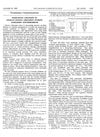precursor of vitamin B5 with hair stimulating effects
signaling protein that, when suppressed, may grow hair by reducing inflammation and stem cell loss
research compound made to degrade androgen receptors in scalp
Frontline, gold standard treatment for combatting androgenic alopecia



